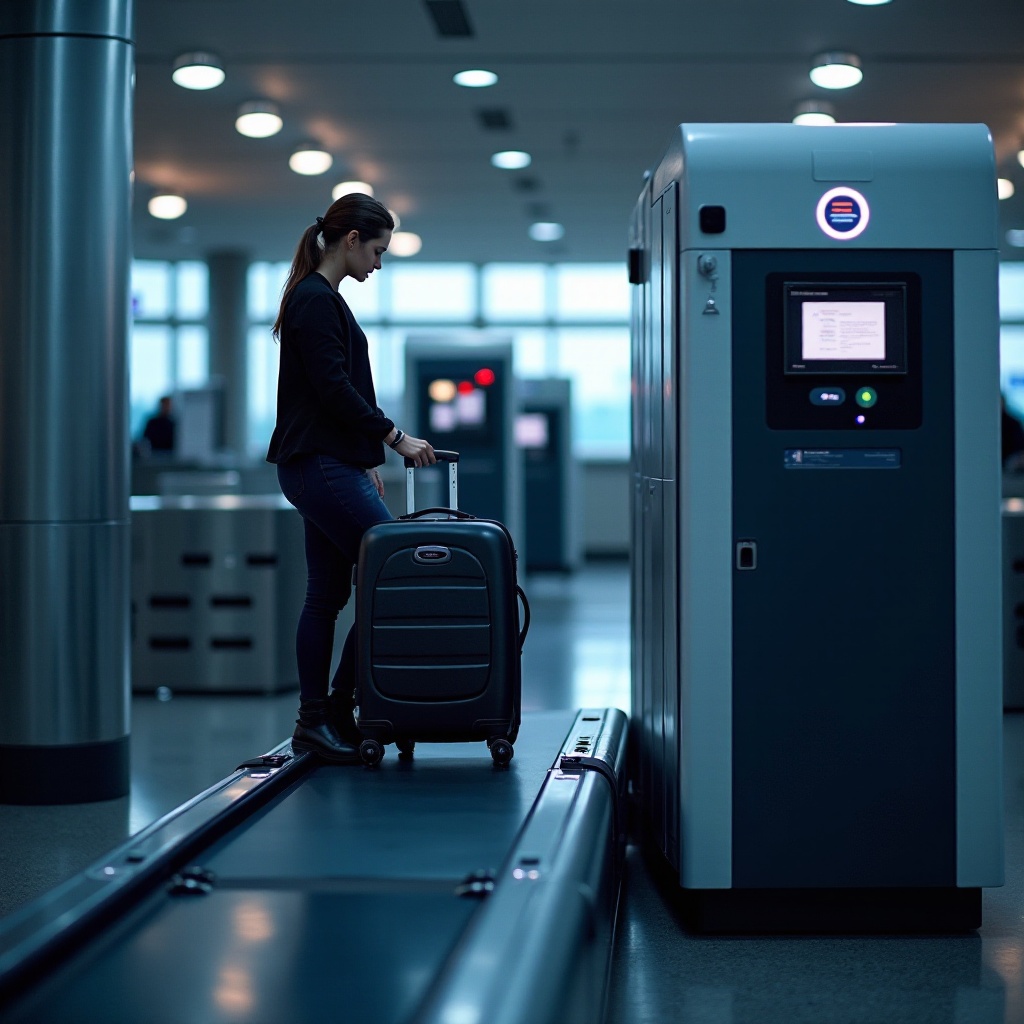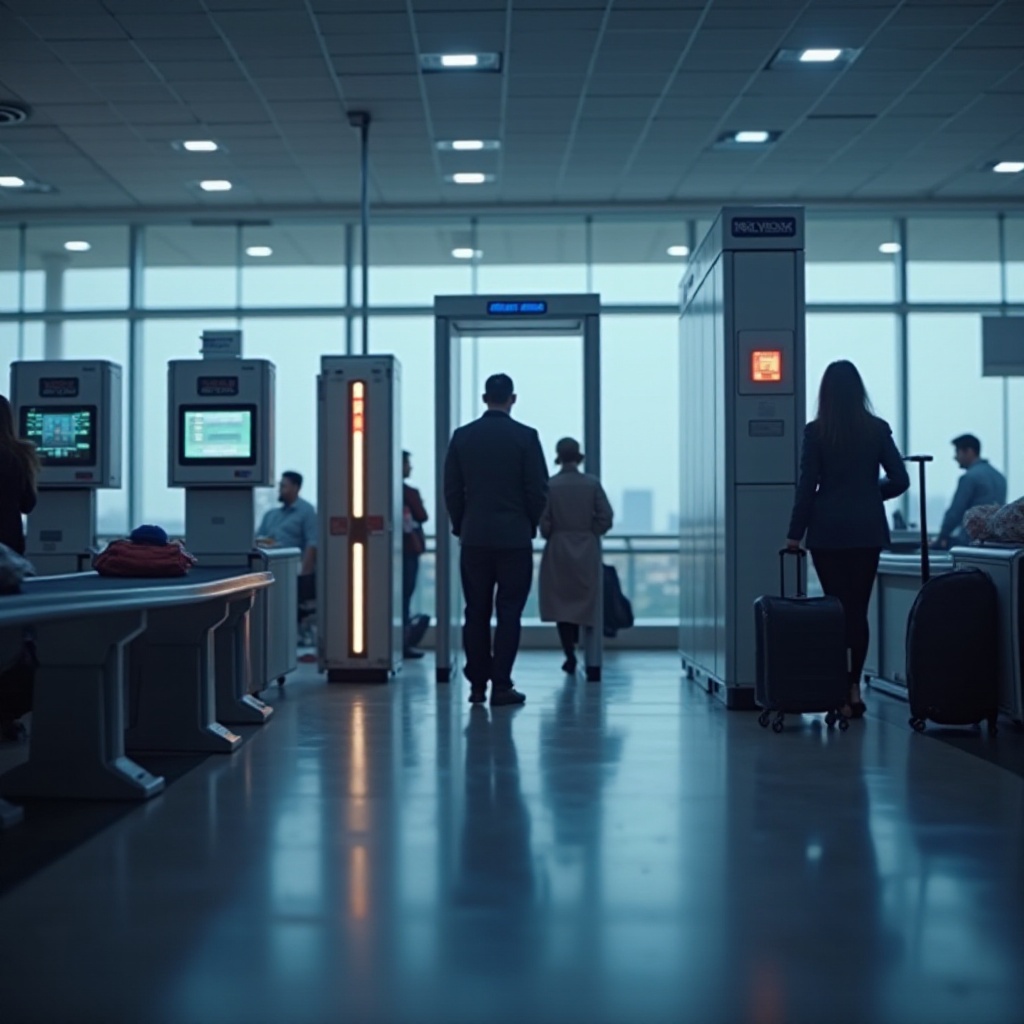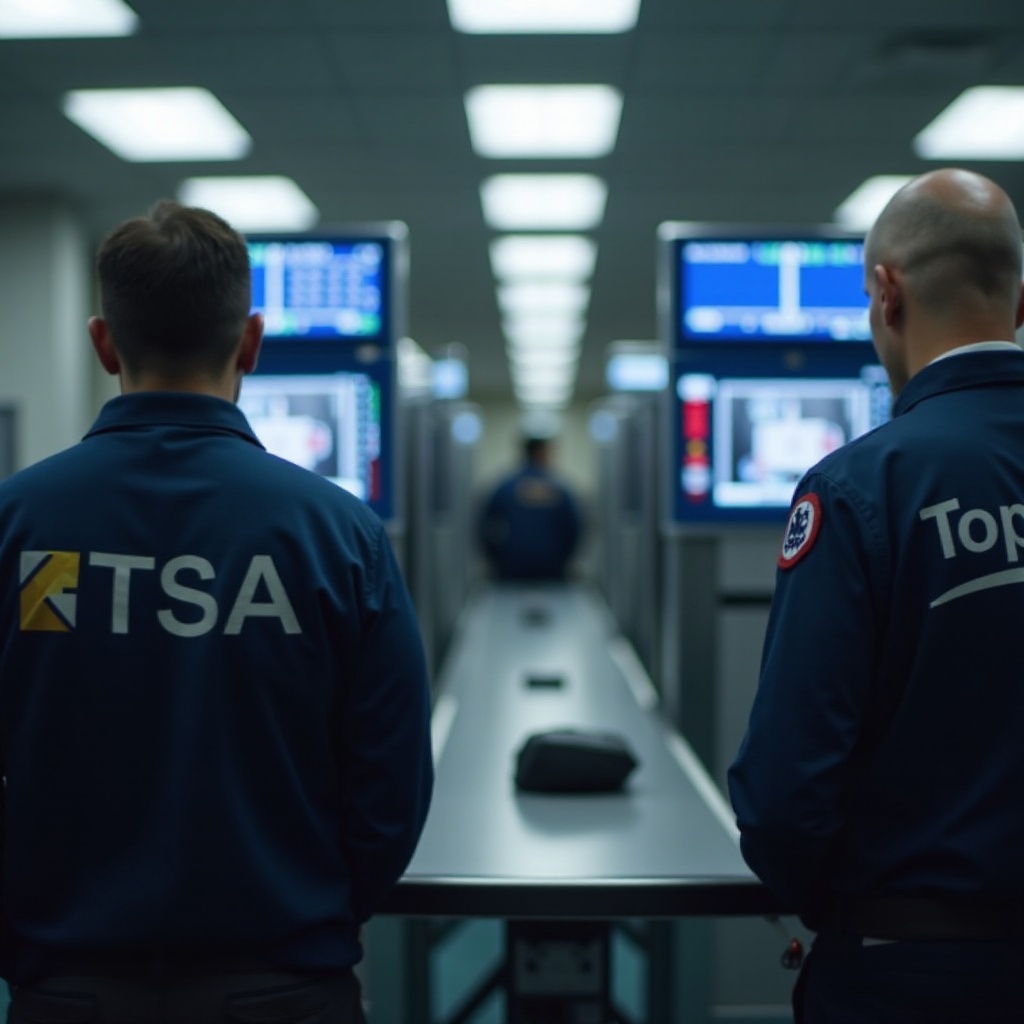Introduction
As cannabis usage becomes more widespread and legal in various states, many travelers wonder about carrying THC through airport security. The Transportation Security Administration (TSA) has stringent guidelines, and it’s vital for travelers to understand what TSA scanners can detect, how they operate, and what carrying THC could mean for them. This comprehensive guide will address these concerns and offer practical tips for traveling responsibly.

The Functionality of TSA Scanners
TSA scanners are advanced security devices used in airports to ensure passenger safety by detecting prohibited items. These scanners come in two primary types: millimeter-wave scanners and X-ray scanners. Millimeter-wave scanners, often used in full-body scanning, use non-ionizing radiofrequency energy to detect objects hidden under clothing. These scanners generate a generic outline of the body, highlighting any anomalies without showcasing explicit body details.
On the other hand, X-ray scanners, predominantly used for screening luggage, project X-rays through bags and create an image based on the varying levels of absorption. Different materials absorb X-rays differently, allowing TSA agents to identify various objects — from metallic items to organic substances.
Understanding how these scanners work is crucial for determining if and how THC might be detected during airport security checks.
What TSA Scanners Detect
TSA scanners are primarily designed to detect security threats, such as weapons, explosives, and other dangerous items. These devices excel at identifying shapes, densities, and masses that deviate from the norm, flagging items that could pose a risk.
However, TSA scanners do not specifically seek out drugs like THC. While TSA officers are trained to identify suspicious items that might require further inspection, their primary focus remains on maintaining the safety of flights from major threats. This means that while TSA scanners could potentially highlight organic material anomalies (such as edibles or plants with THC), TSA personnel aren’t typically searching for or concerned with small amounts of recreational drugs.
THC and Its Various Forms
THC, or tetrahydrocannabinol, is the psychoactive component of cannabis, responsible for the ‘high’ feeling users experience. THC can be consumed in multiple ways:
- Flower/Bud: This is the most recognizable form, where the dried flowers of the cannabis plant are smoked or vaporized.
- Edibles: These include THC-infused food items such as gummies, brownies, or beverages.
- Vapes: Concentrated THC oils used in vape pens or vaporizers.
- Concentrates: Including waxes, oils, and shatters, these are highly potent forms of THC.
The form in which travelers carry THC could influence the likelihood of detection by TSA scanners. Edibles, for example, might resemble everyday food items, while vape pens or concentrates might stand out more prominently due to their packaging and density.

TSA Regulations on THC
The TSA’s stance on cannabis and THC is clear: marijuana remains illegal under federal law. While some states have legalized recreational or medical marijuana, the federal status of cannabis supersedes state laws in areas like airports. Consequently, carrying cannabis or THC products can lead to complications, even in states where the substance is otherwise legal.
Under TSA guidelines, any form of marijuana, including THC, is prohibited. If detected, TSA agents are required to report it to local law enforcement. However, the enforcement of these regulations can vary based on location and the quantity of THC found.

Real-Life Experiences and Anecdotes
Travelers’ experiences with TSA and THC vary widely. Some individuals report carrying small amounts of THC without issue, while others have faced more severe repercussions. Consider these two anecdotes:
-
Discreet Travelers: Jane carried THC-infused gummies on her flight from California to Colorado. Placing them alongside regular snacks in her carry-on, she passed through security without any alarms. Her experience suggests that discreet packaging and minimal quantities might escape scrutiny.
-
Caught Off Guard: Tom, traveling from New York to Texas, carried a THC vape pen in his carry-on. The unusual shape and density of the device caught the attention of TSA scanners, and further inspection led to its discovery. Although TSA officers didn’t arrest him, they confiscated the vape pen and reported the incident to local authorities.
These anecdotes highlight the inconsistencies in TSA enforcement; while some travelers might pass through unscathed, others could face significant issues.
Practical Tips for Travel
If you find it necessary to travel with THC, consider these practical tips:
- Leave it at Home: The safest option is not to carry THC products when flying. This avoids any potential legal complications.
- Pack Discreetly: If you must travel with THC, ensure it is stored discreetly. THC gummies or other edibles can blend in with regular snacks, while small quantities of vape oils might go unnoticed.
- Know the Laws: Familiarize yourself with both departure and arrival state laws concerning THC. This awareness can be critical in understanding potential risks.
- Use Medical Cards: If you have a medical marijuana card, carry it with you. While TSA is not required to honor state-issued cards, they might provide some leniency.
Conclusion
Navigating TSA regulations regarding THC involves understanding scanner functionalities, current laws, and potential outcomes. While TSA scanners can detect anomalies in organic substances, their primary concern remains flight safety rather than small quantities of THC. Remaining informed and cautious can ensure a smoother travel experience.
Frequently Asked Questions
Can TSA scanners see THC gummies?
TSA scanners can detect organic materials, potentially including THC gummies. However, these might not trigger alarms unless packaged suspiciously or in large quantities.
What happens if TSA finds THC?
If TSA finds THC, they will report it to local law enforcement. The response varies; you might face confiscation, fines, or legal action based on location and quantity.
Are medical marijuana cards accepted by TSA?
TSA does not formally recognize state-issued medical marijuana cards due to federal law. However, carrying your card might provide context and leniency, depending on the situation.

